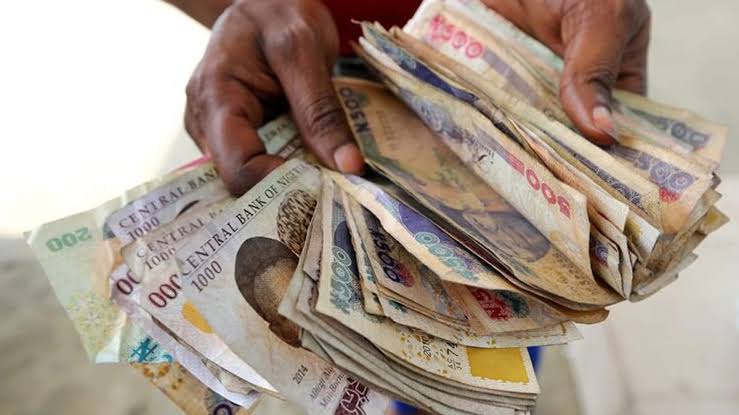According to analysts, the Nigerian currency is expected to depreciate between 10 and 20 per cent next year as the impact of falling crude oil prices and foreign exchange reserves persist.
Local and foreign analysts predicted that a decline by 10 per cent would take the naira to about N400 to dollar, while a 20 per cent drop would see it at around N450 to dollar.
According to Bloomberg survey of investors, the local currency may be marked down by up to 20 per cent in 2021.
According to the survey, the drop in foreign reserves and lower oil prices will probably force the Central Bank of Nigeria (CBN) to devalue the naira, seen as one of the world’s most stable currencies by next year.
The continued stability of the naira against the dollar has continued to spark speculations, with many analysts predicting that the local currency will sooner or later be devalued.
The Bloomberg survey of investors and analysts, showed that 10 out of 19 respondents expect the naira to be weakened next year, while five predict a mark-down as early as the second half of this year.
The remainder believe the CBN will keep a firm grip on the currency until 2022 or 2023.
Read also: 2.9% Economic Growth Projection Achievable in spite IMF’s position– BMO
The CBN has instituted several policies to defend the naira, including restricting importers’ access to dollars and stepping up the sale of high-yielding debt to attract inflows from portfolio investors.
People believe that Nigeria cannot keep defending and sustaining naira’s stability beyond 2021.
All but four of the survey participants said the naira is more than 10 per cent overvalued against the dollar. Two respondents said it was at least 20 per cent too strong.
The currency has traded around 360 to 365 per dollar since its last devaluation in 2017. While the CBN says the exchange rate is determined by the market, it is much less volatile than other oil currencies such as the Russian ruble and Kazakh tenge.




 Premier League
Premier League